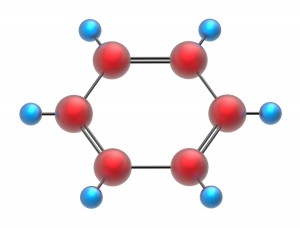Several months ago, Apple Inc. (NASDAQ:AAPL) stated that it would take action to prompt its suppliers to operate in a safer, more environmentally friendly fashion, bringing them closer in line with the Cupertino company’s own low-footprint facilities. Yesterday, on Wednesday, August 13th, 2014, Apple announced that it will remove benzene and n-hexane from the manufacturing process, ordering its suppliers to cease use of these dangerous chemicals forthwith.
Though Apple (AAPL) was likely planning the move in any case, the direct trigger, according to reports, was a petition filed jointly by Green America and China Labor Watch. The two chemicals are used during the last stages of assembly when iPhones and iPads are being produced. From this point onwards, their use is disallowed and the partner companies will be obliged to find safer alternatives such as alcohol to use in the process.
 Attention was initially brought to the two chemicals by Mike Daisey of the radio show “This American Life.” Apparently, Mr. Daisey created a series of imaginary problems at Apple’s factories for his show, in order to engage in the popular sport of “Apple-baiting” and perhaps cast himself as a conscientious crusader. However, though completely invented, the situation he described did cast the bright light of public scrutiny on the use of benzene and n-hexane.
Attention was initially brought to the two chemicals by Mike Daisey of the radio show “This American Life.” Apparently, Mr. Daisey created a series of imaginary problems at Apple’s factories for his show, in order to engage in the popular sport of “Apple-baiting” and perhaps cast himself as a conscientious crusader. However, though completely invented, the situation he described did cast the bright light of public scrutiny on the use of benzene and n-hexane.
These two chemicals can, if a person is exposed to them without adequate protection, cause serious and possibly fatal harm. N-hexane can damage the nervous system, while benzene is a carcinogen that can trigger leukemia. Apple (AAPL) conducted an in-depth investigation of 22 facilities over the course of four month, and was unable to find any evidence that workers were being exposed to harmful doses of either substance. Nevertheless, the company decided to ban both chemicals from the production process.
The move is probably wise on several counts. Apple’s reputation will be boosted somewhat, though the firm does suffer from the “damned if you do, and damned if you don’t” dilemma that often afflicts prominent companies and individuals. Benzene and n-hexane actually are dangerous, so future accidents are being prevented by the Cupertino company’s proactive steps. Furthermore, the chemicals are also environmentally destructive, so a dedicated “green” firm like Apple is well rid of them by the standards of their own mission statement.
A phrase from antiquity suggests that “when all is said and done, much more is said than done.” In this case, Apple is actually living up to its promises, even if it is not moving particularly fast, and is working to “clean up” its allied companies as well.



